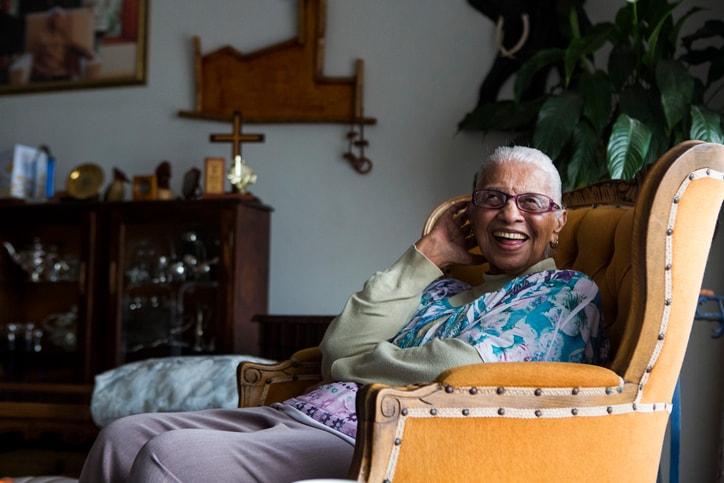In this article
For some older adults, being called elderly might feel off-putting. Perhaps it conjures memories of a wispy great-grandmother or great-grandfather who looked like a puff of wind could knock them over. Then again, for some, “elderly” is linked to “elder,” signifying wisdom and authority.
Indeed, elderly is a subjective term — positive for some, negative for others, and neutral for many.
In many cultures, elderly is used positively. In the United States, it is accepted and not seen as ageist if used for people in their mid-80s and older, says Dr. June McKoy, a geriatrician and professor at Northwestern Medicine’s Feinberg School of Medicine. She adds that in the U.S., the term “denotes frailty.”
So, at what age is someone considered elderly? And do medical professionals use this term in their practices? Below, McKoy and Blair Gingerich, a clinical pharmacist in Granger, Indiana, weigh in.
Key takeaways
- The term “elderly” is subjective — some older adults may have a positive association with it, while others find it off-putting.
- Many health care professionals consider a person in their mid-80s, who’s also physically frail, “elderly.”
- There are a number of other terms to use instead, including older adult, senior and more.
What age is considered “elderly”?
According to the United States Social Security Administration, anyone age 65 or older is elderly. However, the same criteria don’t apply in every medical setting, so it’s not cut and dried.
In McKoy’s practice, elderly “refers to people in their mid-80s.” But when it comes to dispensing meds, Gingerich says anyone older than 65 is considered elderly. She says pharmacists must categorize this age group because patients in their late 60s and older tend to be more vulnerable to medication side effects such as dry mouth, constipation and orthostatic hypotension (sudden drop in blood pressure when standing up).
So, does elderly refer to age 65, 85 or somewhere in between? The lack of a standardized answer isn’t isolated to the United States. A 2014 research review found limited guidance on what defines “elderly” in Australian clinical settings. The researcher concluded that describing an older adult as “elderly” should be based on physical health and medications rather than chronological age. In other words, maybe “elderly” is a feeling, not a number.
Describing an older adult as “elderly” should be based on physical health and medications rather than chronological age.
— 2014 research review, Pharmacy Practice
Do medical professionals use the term “elderly”?
Absolutely! McKoy regularly uses the term to describe patients in their mid-80s (or older) who are also physically frail. But she warns against calling someone elderly simply based on their appearance or because they’re old enough to retire, benefit from social security or switch to Medicare.
Again, Gingerich refers to patients as elderly to highlight the need for age-based drug monitoring. “Medications that cause cognitive impairment, like sleep aids, can be more dangerous for elderly people,” she explains. If the drug’s side effects increase the risk of a fall, she considers whether it might be necessary to adjust the dosage or switch to a different medication that offers the same benefits with less risk.
Join Care for free
Other terms for aging adults
Fortunately, there’s more than one way to describe aging loved ones. Regardless of how you feel about the word “elderly,” you can safely use these other terms:
- Older adult. “When we do research that lumps a range of older adults together — 60s to 100, for example — we use the term ‘older adults,'” says McKoy.
- Senior. McKoy describes this common word as “lay person’s terminology.” Many older adults enjoy being called a senior because it unlocks new discounts for clothes, food and travel.
- Senior citizen. Like the word “senior,” senior citizen tends to have a positive connotation. Merriam-Webster even uses this term to describe someone who has retired from the workforce.
- Aging. Grandma might or might not be elderly, but she’s undoubtedly “aging.” Of course, this is true of every person on the planet.





